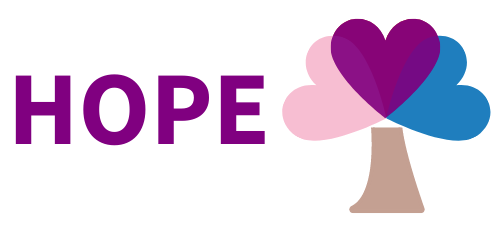Resources
Recurrent pregnancy loss (RPL) affects up to 5% of couples and is defined as 2 or more pregnancy losses. Women and birthing persons — and their partners — lack explanations as well as recommendations for future plans. Chromosomal abnormalities are the cause for up to half of all miscarriages, but it is not the case for all losses. Studies indicate that even miscarriages with the normal set of 46 chromosomes can have a high incidence of visible structural defects suggesting that unknown gene defects can cause pregnancy loss. Although most patients with RPL go on to have a baby, these couples continue to have higher than expected miscarriage risk, are at risk for negative emotions such as guilt, grief, and distress.
Depression and anxiety are common after recurrent miscarriage. Participating in our study may provide answers and improve our and your understanding of pregnancy loss. Studies show that identifying a cause can help reduce feelings of depression and anxiety. Your participation in our study may help you know the cause of your loss and also help other women with the same history as you.
Very little is currently known about the genetic basis for unexplained recurrent pregnancy loss, despite the high prevalence of pregnancy loss. In order to address this gap in knowledge, this study will use a comprehensive approach to identify genetic predictors of recurrent pregnancy loss. Through this research, we will be able to provide more complete and accurate diagnostic testing and targeted therapies to couples who currently have very few effective therapeutic options. A major goal of the HOPE project is to build out a database of genes associated with recurrent pregnancy loss as a resource to inform the clinical, research, and RPL community.
Sponsored by the National Institute of Health, this multi-site study aims to use novel approaches to find explanations of pregnancy loss and learn how we can predict future pregnancy outcomes.
Resolve
Support Groups
Resolve: The National Infertility Association hosts peer-led support groups across the nation for those struggling with infertility.
The American College of Gynecologists and Obstetricians (ACOG) has an accessible fact sheet on early pregnancy loss.
Recurrent Pregnancy Loss Association (RPLA) provides support and resources for families who experienced recurrent pregnancy loss.
Start Healing Together is a organization to support educators who have experienced pregnancy loss or infertility.
Share hosts online pregnancy loss support groups.
Miscarriage Matters Inc. is a support group of parents who have suffered pregnancy and/or early infant loss,
Hand of the Bay Area provides empathetic peer support to parents and their loved ones who are grieving the loss of a baby before, during, or after birth.
Return to Zero Hope has resources and provides inclusive support for anyone whose life has been touched by loss, including miscarriage, termination for medical reasons (TFMR), stillbirth, infant or toddler death, loss through surrogacy, and failed adoption.
Spirit Babies provides guidance on how to host interfaith events for people to come together in sacred space to honor themselves, spirit babies, and one another.
First Candle
Support Groups
First Candle offers online confidential bereavement groups for families who have experienced stillbirth or miscarriage. These are safe and supportive spaces for you to process.
Postpartum Support International has a resource page for those who are experiencing loss and grief — find discussion groups and tools.
I Was Supposed to Have a Baby provides a supportive online space for Jewish individuals and families struggling with infertility and pregnancy loss.
Sisters in Loss is a community of Black women who have experienced loss (services, resources, podcast and more).
A Heartbreaking Choice supports those who have had a pregnancy termination due to medical reasons.
CLIMB, Inc. is an international support group for those who have experienced the death of one or more twins or higher multiples at any time from conception through birth, infancy, and childhood.
Glow in the Woods is a forum with resources for parents who experienced infant loss.
Share hosts national chapters and support groups in English and Spanish. If you are in St. Louis Metropolitan area, there are in-person events.
Words of Comfort
“A mother is never defined by the number of children you can see, but by the love that she holds in her heart.”
— Franchesca Cox


